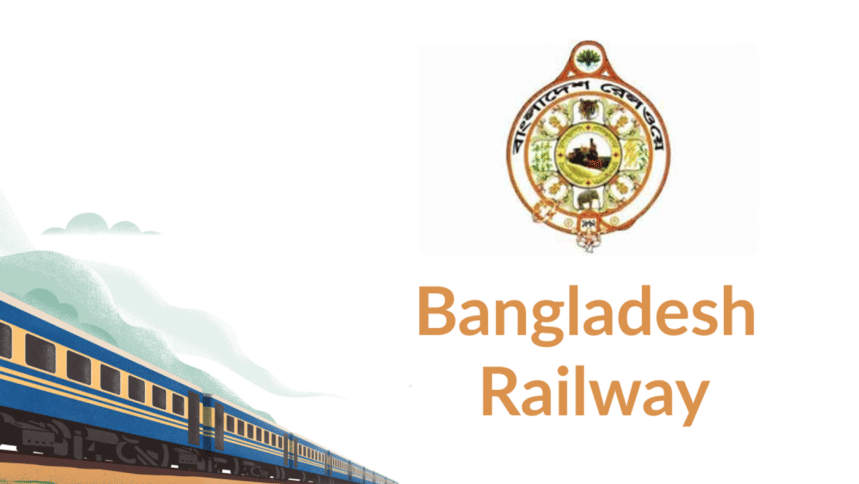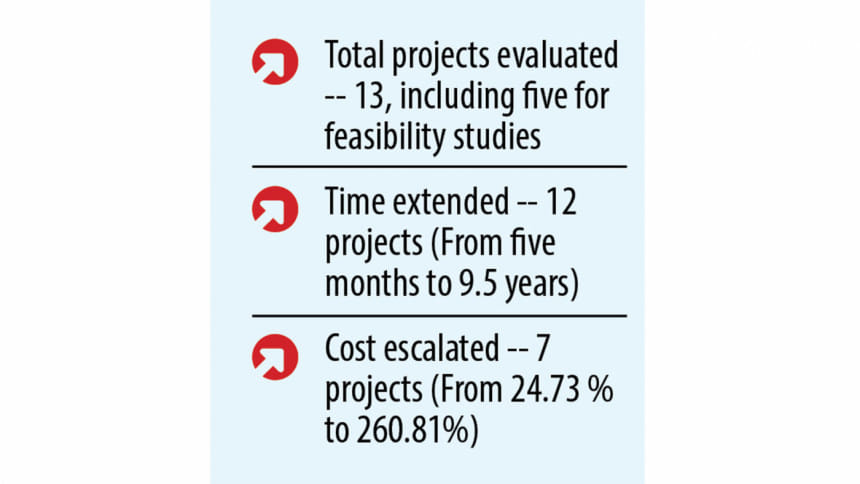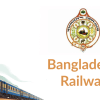13 railway projects: Cost overrun up to 260pc, time 9.5 years

Bangladesh Railway in October 2007 took up a project to construct a new station building in Khulna and enhance the operational capacity of the Benapole Station.
The initial cost was set at Tk 40 crore and the estimated time for completion was two years.

However, when the authorities declared completion in December 2018 – a whole nine and a half years after the original deadline – it was found that some works still remained incomplete.
In the meantime, the project cost escalated to Tk 93.90 crore – 113 percent higher than the original estimate.
This is not a lone incident of BR's poor performance in project implementation.
As a matter of fact, 12 out of its 13 projects completed in the 2018-19 fiscal year saw time extensions ranging from five months to nine and a half years, according to a government evaluation report.
Four of those projects were for feasibility studies.
Seven saw cost overshoots ranging from 24.73 percent to a whopping 260.81 percent, shows the recently released report by the Implementation Monitoring and Evaluation Division (IMED).
Of the 13, five projects were for laying rail lines and building stations; five for conducting feasibility studies for future projects; one each for installing signals, repairing old carriages and reforming railway policies.
The report attributed the time and cost overruns to complications over land acquisitions, changes in project designs, increase in work scopes and changes in the procurement rate schedule.
However, experts blamed substandard feasibility studies and planning; a lack of BR and its contractors' capacity; and a lack of accountability of responsible BR officials for the poor state of its project implementations.
The IMED report came at a time when most of BR's 28 ongoing projects are behind schedule, with around half a dozen of them delayed for around a decade.
In October 2010, the BR undertook a project to build a 78km rail line from Ishwardi to Dhalarchar via Pabna by June 2015 and at a cost of Tk 982.86 crore.
However, the project saw completion in June 2019 while its cost rose to Tk 1,714.73 crore, the report shows.
IMED, in the report, recommended proper feasibility studies and project designs, while also enhancing the BR's capacity for project implementation and intensifying monitoring by the railways ministry.
In another instance, the BR took up a project in December 2007 to build a second 80.47km-long rail line from Laksham to Chinki Astana to improve the capacity of the Dhaka-Chattogram rail corridor at a cost of Tk 501.5 crore.
Originally slated for completion by 2012, it was completed in October 2018 and at a cost of Tk 1,809.48 crore – 260 percent higher than the original.
Then in April 2016, the BR initiated a Tk 5.84 crore project to identify the spots on the Narayanganj-Dhaka-Joydebpur route that need an overpass or underpass. It was supposed to be completed in a year and half but was extended for another year.
The only exception to the trend of poor implementation was the project to repair 100 old carriages. The Tk 58.30 crore project was completed within the stipulated time and cost.
Transport expert Professor Hadiuzzaman, of Buet's civil engineering department, said many projects see a change or increase in work scope in the middle of implementation due to poor feasibility studies.
"Many issues are often not included or mentioned in the feasibility studies to show a lower project cost. However, those issues then come up in the middle of implementation, resulting in project revision.
"They [implementing agencies] do this intentionally because they know that once the work of a project starts, it won't be cancelled … This has become the culture in all project implementations, including those for the railway," he told this newspaper on Sunday.
Meanwhile, he added, no project official is ever held responsible for the time and cost overruns.
Hadiuzzaman further said the BR also does not have the capacity to implement such a big number of projects, while the number of contractors involved in railway projects is very limited, adversely affecting the implementation.
Replying to a question, he said the delays in implementation reduce the financial and economic viability of the projects and deprive people of the services they are meant to get.
"The culture of project revision [in the middle of implementation] must end …."
Contacted, Mohammed Mofizur Rahman, additional director general (infrastructure) of the BR, admitted there may have been flaws in some of the feasibility studies, resulting in delayed implementation.
He added that in many cases, they have to change or increase the work scope after beginning implementation activities on the field, following demands of locals representatives.
Moving utilities, acquiring lands and a lack of manpower are other major reasons behind project revisions and delays, he told The Daily Star yesterday.
He, however, refuted the allegations of BR's lack of capacity to implement such a big number of projects.

 For all latest news, follow The Daily Star's Google News channel.
For all latest news, follow The Daily Star's Google News channel. 








Comments